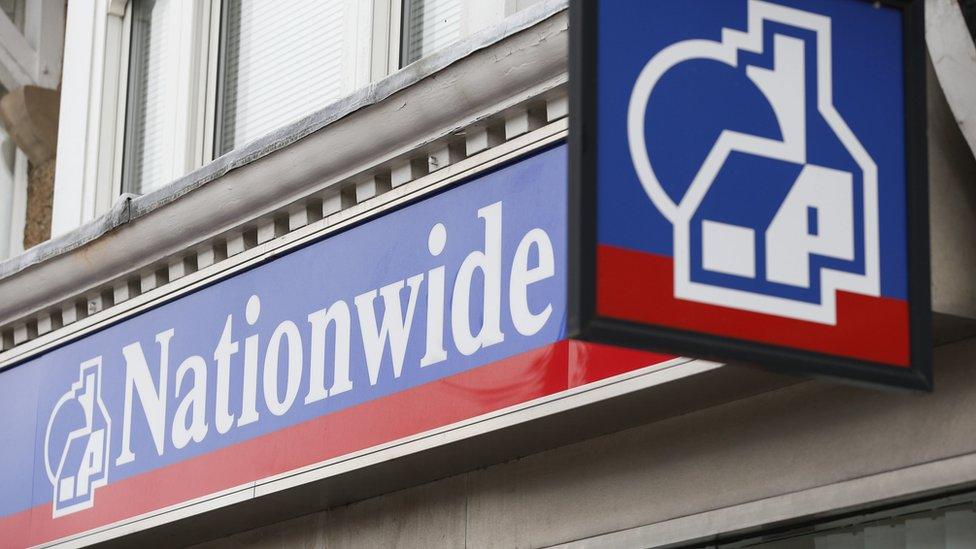Coronavirus: First-time buyers slip on the property ladder as deposits rise
- Published
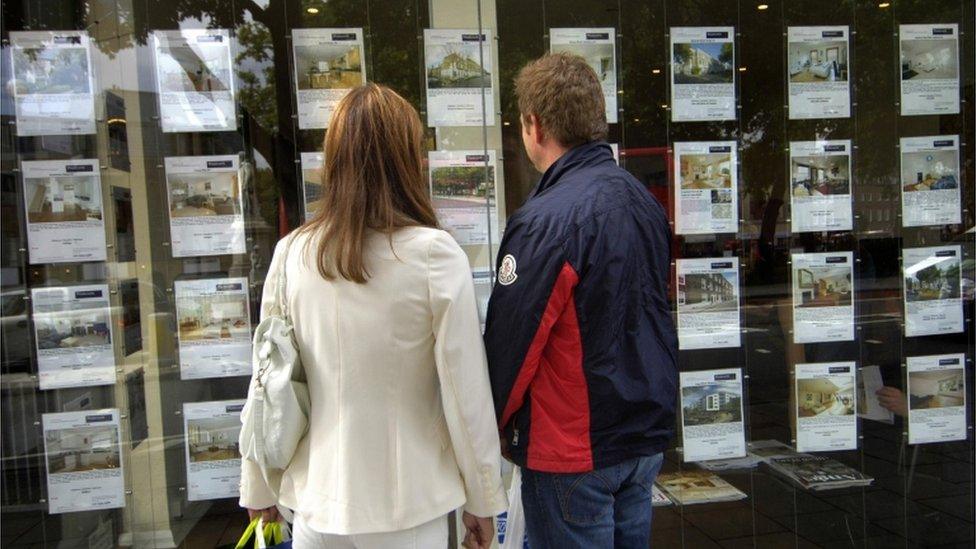
The goalposts have moved for many first-time buyers
Purchasing a first home is one of the biggest financial steps many people will ever take.
But changes to the housing market brought on by the Covid-19 pandemic have made that step a little bigger.
For those scrimping and saving to afford a deposit, coronavirus has put an extra strain on their buying power.
Before lockdown, Steven Conville had agreed a mortgage in principle with a 5% deposit, but the yoga teacher was not quite ready to put an offer on a property and was hoping to wait until the summer.
However, with the availability of mortgages, loans, and other credit having been squeezed by uncertainty in the economy, Steven is now looking at a 10% mortgage - and double the amount of money he had initially planned to spend in order to get onto the property ladder.
Many other first-time buyers are in a similarly precarious position.
In the UK, mortgages in which a first-time buyer would pay 5% on the value of the property as a deposit have disappeared from the market.
Deposits of 10% have also become rarer, and banks have put in place tighter rules on how much a person's family can help them with a deposit.
'Scrapping the barrel'
For Mr Conville, things are going to be tight, but he has hope the situation can be salvaged by the end of the year.
"I would be in a position, by the end of the summer, to have a 10% deposit on a mortgage," he said.
"But that would be scraping the barrel."

Steven still hopes to be able to buy a property before the end of the year
He said the "few extra thousand" he had put to one side, which he would have used for solicitors' fees and other additional payments, would now go into the deposit.
While he has taken up additional work in a supermarket during the pandemic, and had some government support, he has not yet been able to return to full-time work as a self-employed yoga instructor.
"The months coming out of it [lockdown] are going to be just as hard or even harder," he said.
'Level of apprehension'
Speaking to BBC News NI, Martin Hinch, a research associate with Ulster University, said despite the pandemic, the housing market had stayed fairly strong.
The academic works with estate agents to produce the Northern Ireland Quarterly House Price Index.
"There has been a lot of activity since the lockdown was lifted," he said.
"Any estate agent will tell you they have been flat out doing sales, probably due to some backed-up sales, and the floodgates have opened."
He said the size of the deposit offered to borrowers would vary from lender to lender.
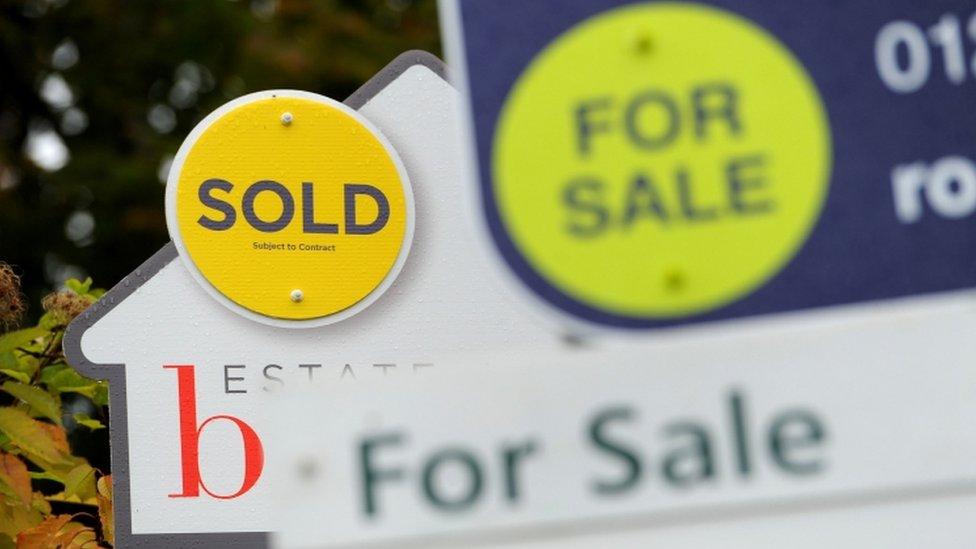
Since the coronavirus pandemic began, mortgages requiring a 5% deposit have practically disappeared from the market
"The only logical answer, I would say, if they have tightened up lending criteria, is that it's probably due to a level of apprehension," he said.
"Possibly due to the lockdown situation and potential future uncertainty."
He emphasised that it was too soon to be drawing definitive conclusions about the direction of the housing market.
'No one to get annoyed at'
For Simon Barbour and his partner Rebecca Edwards, they had chosen their future home, gathered the deposit, and been ready to complete the deal - when Covid-19 moved the goalposts.
"It is quite frustrating because there is nobody really to be frustrated at," said Simon.
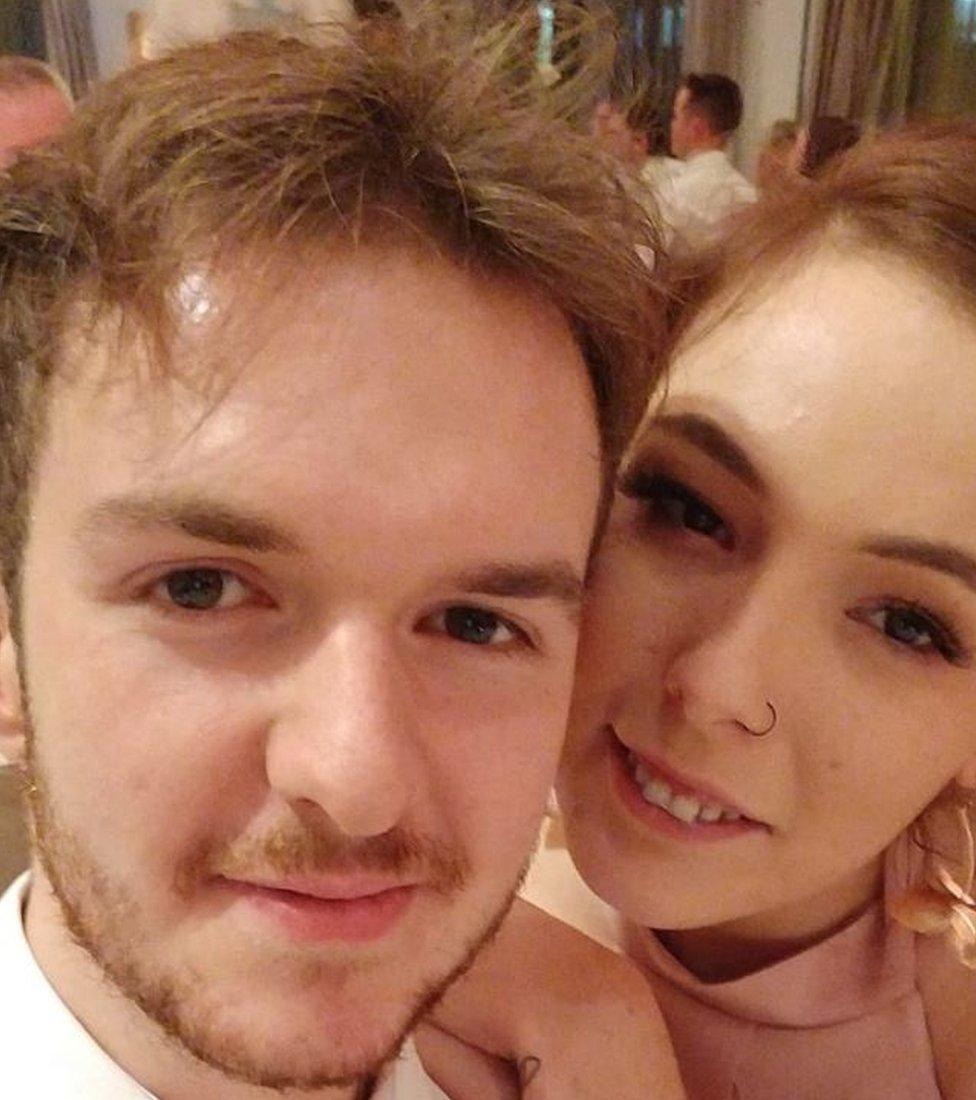
Simon Barbour and his partner Rebecca Edwards were left having to come up with thousands extra for their deposit

The pair were set to pay a 10% deposit on a mortgage worth £166,000, which - with the addition of solicitors' fees and other extras - would have meant a payment of about £18,500.
With their deposit increasing to 15%, the pair are now required to come up with closer to £26,000.
"I suppose it has put a pretty big hiccup in our plans, to say the least," said Simon.
"We were looking at planning our savings around having 10% and even that was a bit of a stretch.
"Now we have to try and go for the 15% and it is not really doable, if we are just saving off our own salaries."
'Not a small sum of money'
Simon, 24, works in the IT industry while his partner Rebecca, 25, works in banking.
He said their options at the moment were potentially taking out a personal loan to cover the additional cost or asking the seller to delay the sale.
While frustrated, Simon said he had "come to terms" with the situation.
"It only comes into my head when I have to talk about it," he said.
"We did a good amount of searching to find a house that we were both a fan of and was in budget - it could well have completely fallen through, and there would be nobody to really blame for it."
Ballyclare-based property developer James Hagan said while the changes had put a strain on many, first-timer buyers were usually able to bridge the gap to a higher deposit.
"We lost maybe four or five people in total. Mostly it was the case they had to gather up another £6,000 or £7,000, although that obviously is not a small sum of money," he said.
Sandra Finney, a Belfast-based estate agent, said lockdown had been good "because people weren't going out and they weren't spending money - so they were able to save a bit more".
"But still, while people have managed to save money, they haven't saved that extra 5% that they might need now."
- Published13 August 2020
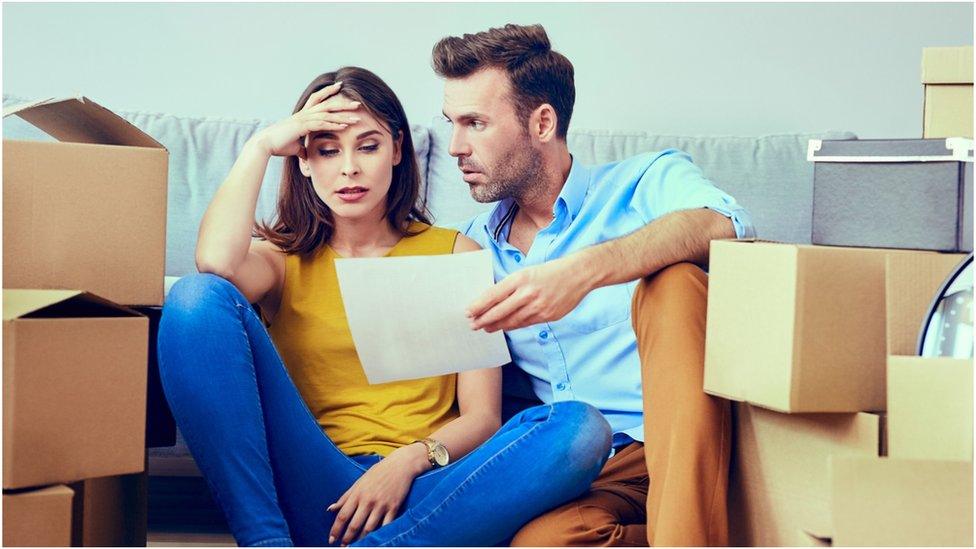
- Published5 August 2020
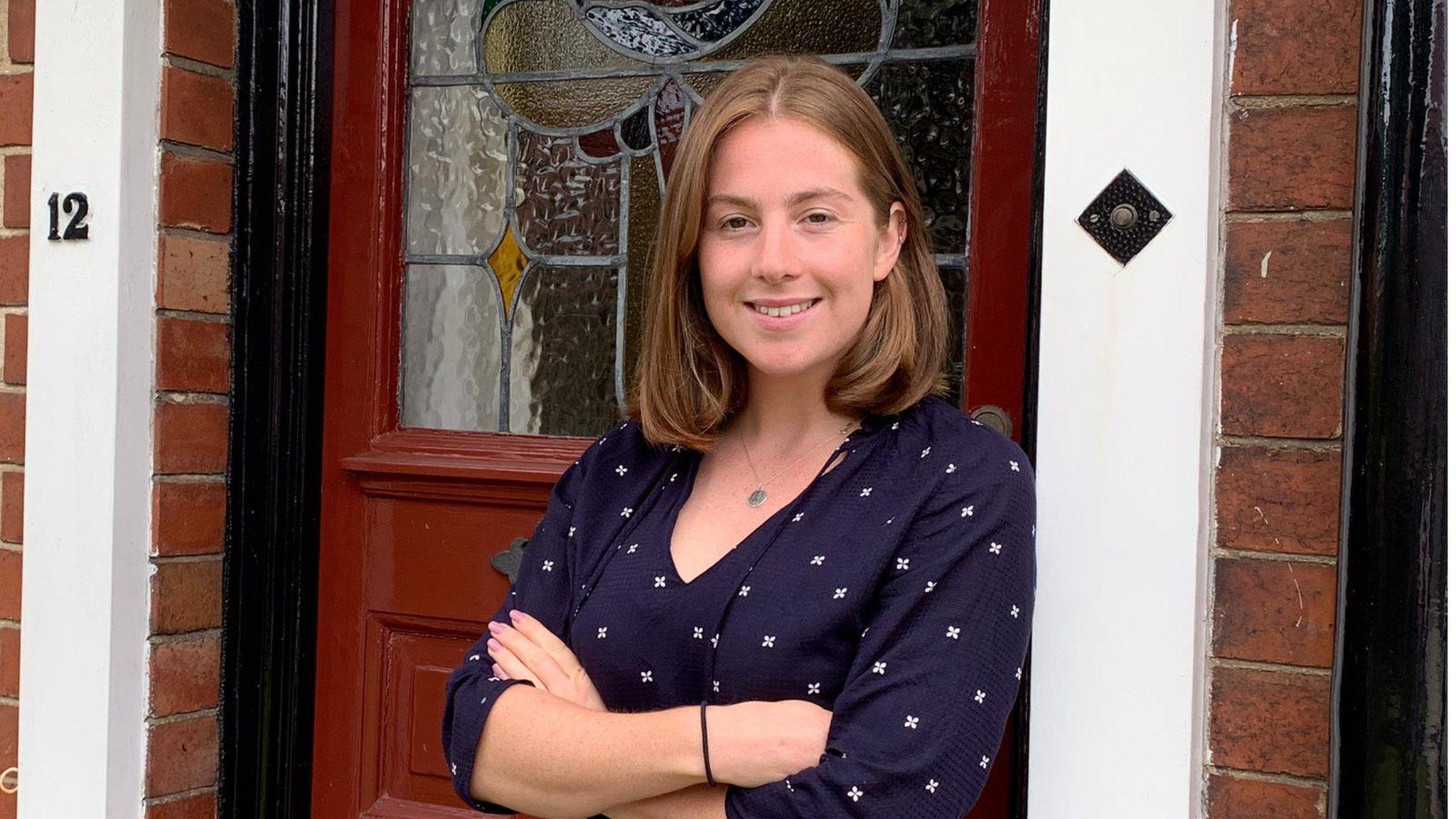
- Published13 July 2020
